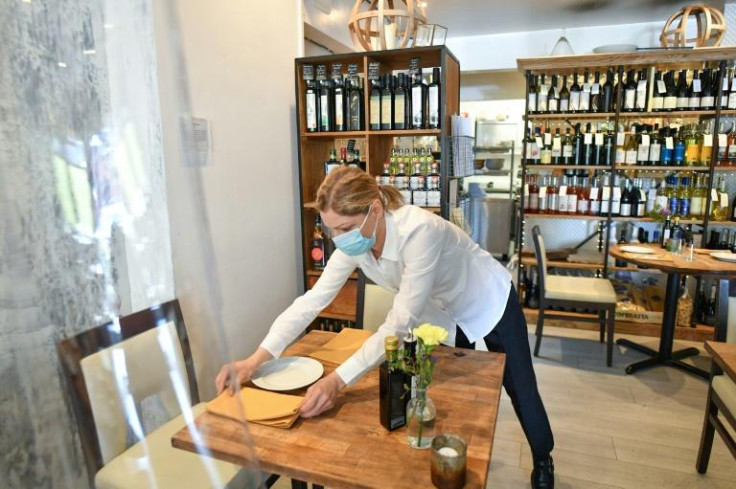Employing Young People Could Save The Hospitality Sector From A Staffing Crisis
After Brexit, around 92,000 EU workers left the hospitality sector to return to their home country, leaving hospitality leaders pushing vacancies onto young people.

Since the COVID-19 pandemic, skilled and experienced hospitality workers have not returned to the industry and have sought jobs elsewhere.
According to a recent report, by researchers at the University of Houston Conrad N. Hilton College of Global Hospitality, workers have not been returning to the sector because they are angry. With millions of workers furloughed and laid off during the several lockdowns, they have remained "angry and unlikely to return to the industry".
In 2021, it was reported that approximately 700,000 hospitality employees traded their jobs each month.
In 2022, the quitting rates amongst hospitable staff members were at an all-time high, with more than 6 per cent of the entire workforce handing in their resignations.
Government ministers have since raced to find a solution to the under-staffing, promoting ideas like hospitality boot camps, where Job Centre candidates are able to become employed and learn new skills at a faster pace.
According to UK Hospitality, the government have also had discussions surrounding the hospitality sector being added to the shortage occupation list.
The shortage occupation list sets out to welcome people from overseas to the UK. As part of the Skilled Workers Visa, those who want to reside in the UK are able to apply for roles in understaffed sectors, including care workers, architects, veterinarians, engineers and scientists.
In return, the overseas workers will be provided with the right to live and work in the UK, in addition to 80 per cent of the jobs' usual going rate.
Brexit has also led to the hospitality industry being victim to a staffing crisis. After the Brexit referendum was passed and it was announced that the UK would officially be leaving the EU, hospitable workers chose or were forced to, return to their home country.
The Caterer, the UK hospitality industry's leading source of business updates, some 92,000 EU workers have left the UK's hospitality sector after Brexit.
While cash-in-hand wages, a popular trope performed by many hospitality businesses across the UK, may sound appealing to those seeking employment, the hospitality sector has a notorious reputation for low hourly pay.
A survey commissioned by Umbrella Training found that just one in 10 young people saw hospitality roles as desirable. More than a third, 31 per cent, said that they were not seeking hospitable employment due to its low wages.
Despite these opinions, research has found that a huge 90 per cent of hospitality employers are paying their workers more than the living wage – which currently stands at 12 per hour for those aged 21 and above.
Surprisingly, 26 per cent of the young persons surveyed noted that they did not know how to get a job in the sector – this could be due to a lack of hospitality businesses advertising vacancies online.
Those who believed they did not have sufficient skills for hospitality work measured at 25 per cent, according to the survey that questioned more than 2,000 young people across the UK between the ages of 14 and 21.
With the overall majority of pubs, cafes and restaurants being the busiest at the weekend, 23 per cent of the youngsters said that hospitality hours were unsociable.
Adele Oxberry, the founder of Umbrella Training conducted the survey, said: "For as long as I can remember, our sector has battled with attraction and recruitment of young people."
"We are hoping that the insights we have gathered will help shape how we as a sector behave in the future," Oxberry added.
Dr Maria Gebbels, a Programme Leader for the MA Tourism and Hospitality Management course at the University of Greenwich, also noted: "The future of this industry lies in its people."
"Employers need to begin to understand the expectations of this unique generation of talent to drive forward hospitality as a career choice," she added.
© Copyright IBTimes 2025. All rights reserved.






















